Xuelin Cao
AI-Empowered Channel Generation for IoV Semantic Communications in Dynamic Conditions
Jul 02, 2025Abstract:The Internet of Vehicles (IoV) transforms the transportation ecosystem promising pervasive connectivity and data-driven approaches. Deep learning and generative Artificial Intelligence (AI) have the potential to significantly enhance the operation of applications within IoV by facilitating efficient decision-making and predictive capabilities, including intelligent navigation, vehicle safety monitoring, accident prevention, and intelligent traffic management. Nevertheless, efficiently transmitting and processing the massive volumes of data generated by the IoV in real-time remains a significant challenge, particularly in dynamic and unpredictable wireless channel conditions. To address these challenges, this paper proposes a semantic communication framework based on channel perception to improve the accuracy and efficiency of data transmission. The semantic communication model extracts and compresses the information to be transmitted. In addition, the wireless channel is estimated by using a generative diffusion model, which is employed to predict the dynamic channel states, thereby improving the quality of IoV service. In dynamic scenarios, however, the channel estimation performance may be degraded when substantially new scenarios take place, which will adversely affect user experience. To mitigate this limitation, we employ a large model to fine-tune the channel generation model to enhance its adaptability for varying scenarios. The performance and reliability of the proposed framework are evaluated on the two public datasets.
Dynamical ON-OFF Control with Trajectory Prediction for Multi-RIS Wireless Networks
May 27, 2025Abstract:Reconfigurable intelligent surfaces (RISs) have demonstrated an unparalleled ability to reconfigure wireless environments by dynamically controlling the phase, amplitude, and polarization of impinging waves. However, as nearly passive reflective metasurfaces, RISs may not distinguish between desired and interference signals, which can lead to severe spectrum pollution and even affect performance negatively. In particular, in large-scale networks, the signal-to-interference-plus-noise ratio (SINR) at the receiving node can be degraded due to excessive interference reflected from the RIS. To overcome this fundamental limitation, we propose in this paper a trajectory prediction-based dynamical control algorithm (TPC) for anticipating RIS ON-OFF states sequence, integrating a long-short-term-memory (LSTM) scheme to predict user trajectories. In particular, through a codebook-based algorithm, the RIS controller adaptively coordinates the configuration of the RIS elements to maximize the received SINR. Our simulation results demonstrate the superiority of the proposed TPC method over various system settings.
Large-Scale AI in Telecom: Charting the Roadmap for Innovation, Scalability, and Enhanced Digital Experiences
Mar 06, 2025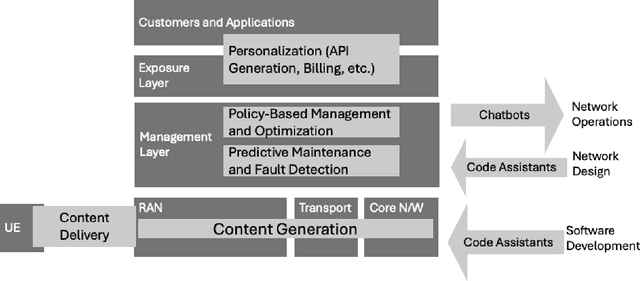
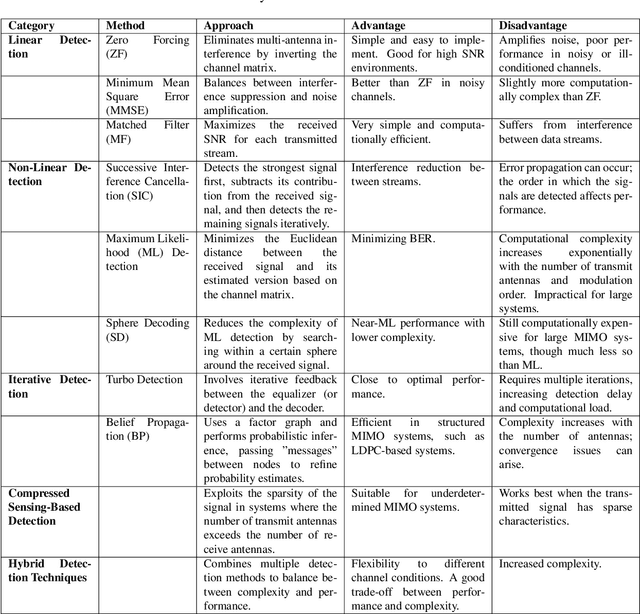
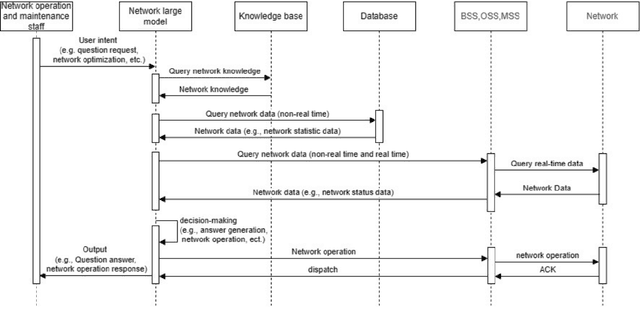
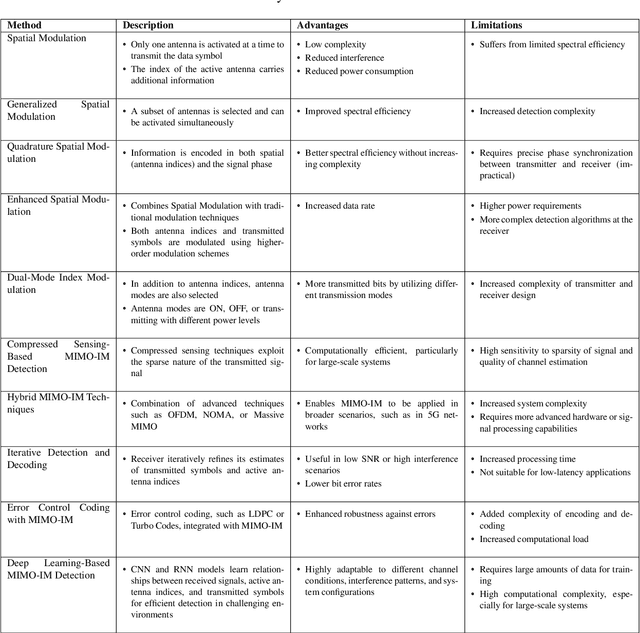
Abstract:This white paper discusses the role of large-scale AI in the telecommunications industry, with a specific focus on the potential of generative AI to revolutionize network functions and user experiences, especially in the context of 6G systems. It highlights the development and deployment of Large Telecom Models (LTMs), which are tailored AI models designed to address the complex challenges faced by modern telecom networks. The paper covers a wide range of topics, from the architecture and deployment strategies of LTMs to their applications in network management, resource allocation, and optimization. It also explores the regulatory, ethical, and standardization considerations for LTMs, offering insights into their future integration into telecom infrastructure. The goal is to provide a comprehensive roadmap for the adoption of LTMs to enhance scalability, performance, and user-centric innovation in telecom networks.
GDSG: Graph Diffusion-based Solution Generator for Optimization Problems in MEC Networks
Dec 15, 2024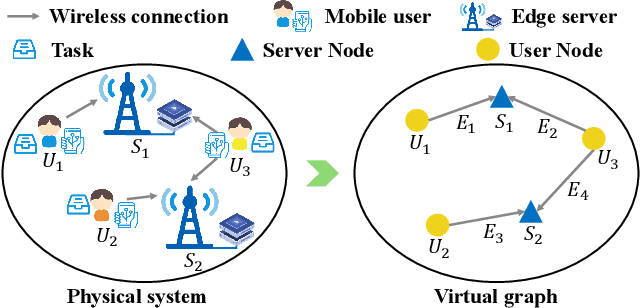
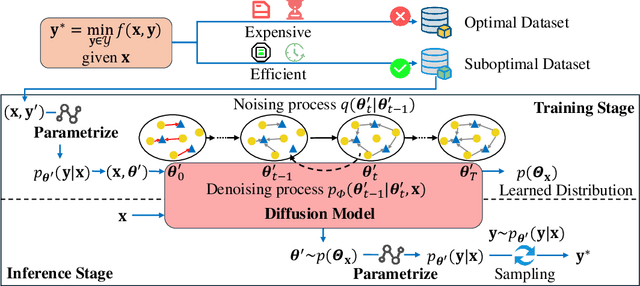

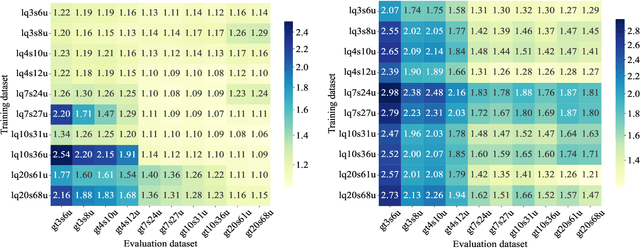
Abstract:Optimization is crucial for MEC networks to function efficiently and reliably, most of which are NP-hard and lack efficient approximation algorithms. This leads to a paucity of optimal solution, constraining the effectiveness of conventional deep learning approaches. Most existing learning-based methods necessitate extensive optimal data and fail to exploit the potential benefits of suboptimal data that can be obtained with greater efficiency and effectiveness. Taking the multi-server multi-user computation offloading (MSCO) problem, which is widely observed in systems like Internet-of-Vehicles (IoV) and Unmanned Aerial Vehicle (UAV) networks, as a concrete scenario, we present a Graph Diffusion-based Solution Generation (GDSG) method. This approach is designed to work with suboptimal datasets while converging to the optimal solution large probably. We transform the optimization issue into distribution-learning and offer a clear explanation of learning from suboptimal training datasets. We build GDSG as a multi-task diffusion model utilizing a Graph Neural Network (GNN) to acquire the distribution of high-quality solutions. We use a simple and efficient heuristic approach to obtain a sufficient amount of training data composed entirely of suboptimal solutions. In our implementation, we enhance the backbone GNN and achieve improved generalization. GDSG also reaches nearly 100\% task orthogonality, ensuring no interference between the discrete and continuous generation tasks. We further reveal that this orthogonality arises from the diffusion-related training loss, rather than the neural network architecture itself. The experiments demonstrate that GDSG surpasses other benchmark methods on both the optimal and suboptimal training datasets. The MSCO datasets has open-sourced at http://ieee-dataport.org/13824, as well as the GDSG algorithm codes at https://github.com/qiyu3816/GDSG.
GDSG: Graph Diffusion-based Solution Generation for Optimization Problems in MEC Networks
Dec 11, 2024



Abstract:Optimization is crucial for MEC networks to function efficiently and reliably, most of which are NP-hard and lack efficient approximation algorithms. This leads to a paucity of optimal solution, constraining the effectiveness of conventional deep learning approaches. Most existing learning-based methods necessitate extensive optimal data and fail to exploit the potential benefits of suboptimal data that can be obtained with greater efficiency and effectiveness. Taking the multi-server multi-user computation offloading (MSCO) problem, which is widely observed in systems like Internet-of-Vehicles (IoV) and Unmanned Aerial Vehicle (UAV) networks, as a concrete scenario, we present a Graph Diffusion-based Solution Generation (GDSG) method. This approach is designed to work with suboptimal datasets while converging to the optimal solution large probably. We transform the optimization issue into distribution-learning and offer a clear explanation of learning from suboptimal training datasets. We build GDSG as a multi-task diffusion model utilizing a Graph Neural Network (GNN) to acquire the distribution of high-quality solutions. We use a simple and efficient heuristic approach to obtain a sufficient amount of training data composed entirely of suboptimal solutions. In our implementation, we enhance the backbone GNN and achieve improved generalization. GDSG also reaches nearly 100\% task orthogonality, ensuring no interference between the discrete and continuous generation tasks. We further reveal that this orthogonality arises from the diffusion-related training loss, rather than the neural network architecture itself. The experiments demonstrate that GDSG surpasses other benchmark methods on both the optimal and suboptimal training datasets. The MSCO datasets has open-sourced at http://ieee-dataport.org/13824, as well as the GDSG algorithm codes at https://github.com/qiyu3816/GDSG.
Diffusion Models as Network Optimizers: Explorations and Analysis
Nov 04, 2024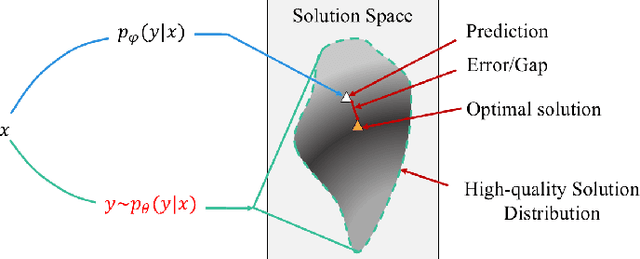
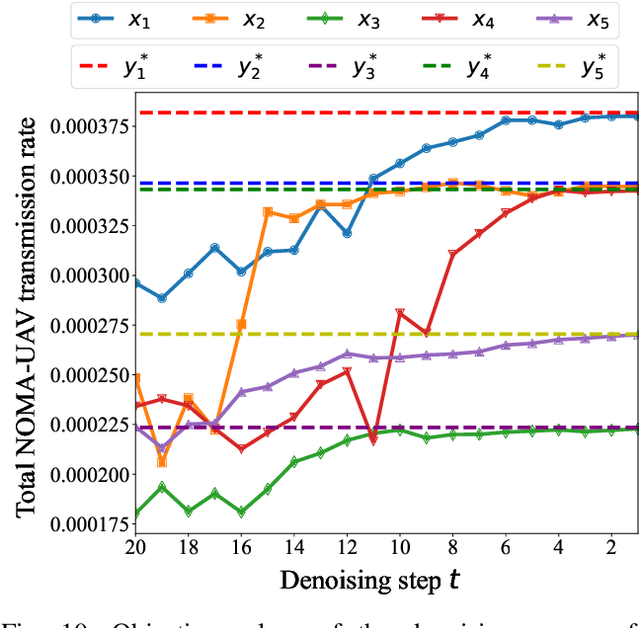
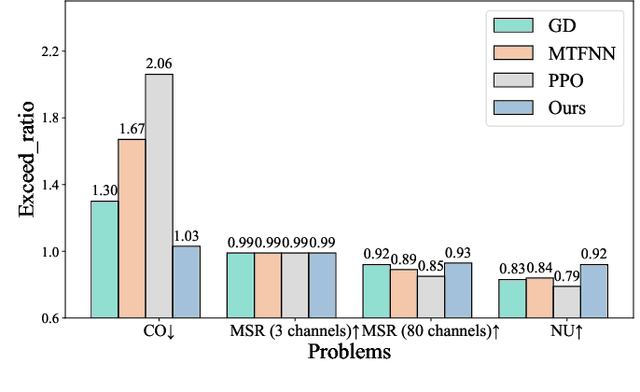
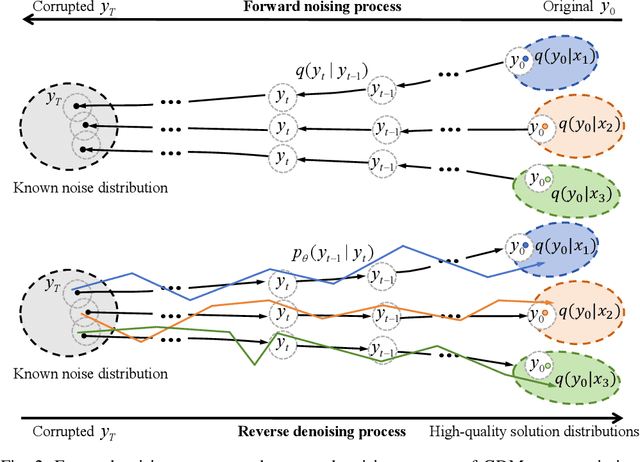
Abstract:Network optimization is a fundamental challenge in the Internet of Things (IoT) network, often characterized by complex features that make it difficult to solve these problems. Recently, generative diffusion models (GDMs) have emerged as a promising new approach to network optimization, with the potential to directly address these optimization problems. However, the application of GDMs in this field is still in its early stages, and there is a noticeable lack of theoretical research and empirical findings. In this study, we first explore the intrinsic characteristics of generative models. Next, we provide a concise theoretical proof and intuitive demonstration of the advantages of generative models over discriminative models in network optimization. Based on this exploration, we implement GDMs as optimizers aimed at learning high-quality solution distributions for given inputs, sampling from these distributions during inference to approximate or achieve optimal solutions. Specifically, we utilize denoising diffusion probabilistic models (DDPMs) and employ a classifier-free guidance mechanism to manage conditional guidance based on input parameters. We conduct extensive experiments across three challenging network optimization problems. By investigating various model configurations and the principles of GDMs as optimizers, we demonstrate the ability to overcome prediction errors and validate the convergence of generated solutions to optimal solutions.We provide code and data at https://github.com/qiyu3816/DiffSG.
DiffSG: A Generative Solver for Network Optimization with Diffusion Model
Aug 13, 2024



Abstract:Diffusion generative models, famous for their performance in image generation, are popular in various cross-domain applications. However, their use in the communication community has been mostly limited to auxiliary tasks like data modeling and feature extraction. These models hold greater promise for fundamental problems in network optimization compared to traditional machine learning methods. Discriminative deep learning often falls short due to its single-step input-output mapping and lack of global awareness of the solution space, especially given the complexity of network optimization's objective functions. In contrast, diffusion generative models can consider a broader range of solutions and exhibit stronger generalization by learning parameters that describe the distribution of the underlying solution space, with higher probabilities assigned to better solutions. We propose a new framework Diffusion Model-based Solution Generation (DiffSG), which leverages the intrinsic distribution learning capabilities of diffusion generative models to learn high-quality solution distributions based on given inputs. The optimal solution within this distribution is highly probable, allowing it to be effectively reached through repeated sampling. We validate the performance of DiffSG on several typical network optimization problems, including mixed-integer non-linear programming, convex optimization, and hierarchical non-convex optimization. Our results show that DiffSG outperforms existing baselines. In summary, we demonstrate the potential of diffusion generative models in tackling complex network optimization problems and outline a promising path for their broader application in the communication community.
Filtering Reconfigurable Intelligent Computational Surface for RF Spectrum Purification
Jun 26, 2024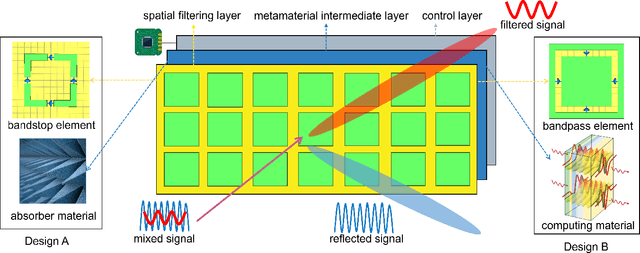
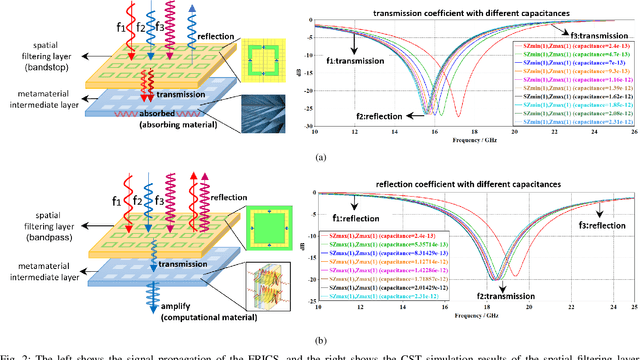
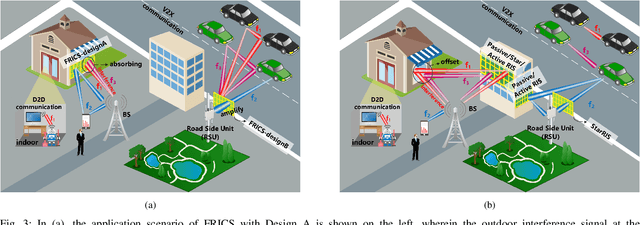
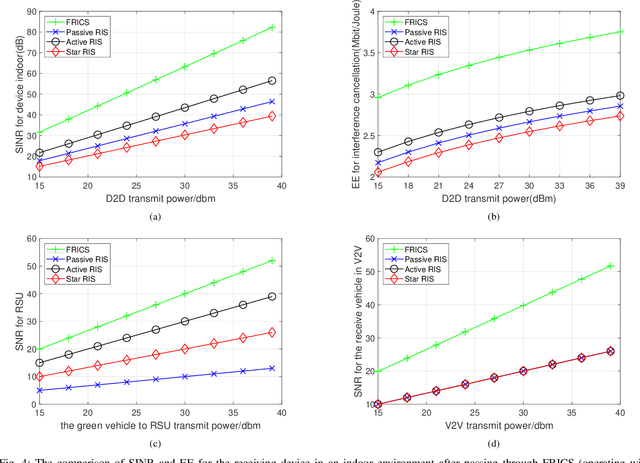
Abstract:The increasing demand for communication is degrading the electromagnetic (EM) transmission environment due to severe EM interference, significantly reducing the efficiency of the radio frequency (RF) spectrum. Metasurfaces, a promising technology for controlling desired EM waves, have recently received significant attention from both academia and industry. However, the potential impact of out-of-band signals has been largely overlooked, leading to RF spectrum pollution and degradation of wireless transmissions. To address this issue, we propose a novel surface structure called the Filtering Reconfigurable Intelligent Computational Surface (FRICS). We introduce two types of FRICS structures: one that dynamically reflects resonance band signals through a tunable spatial filter while absorbing out-of-band signals using metamaterials and the other one that dynamically amplifies in-band signals using computational metamaterials while reflecting out-of-band signals. To evaluate the performance of FRICS, we implement it in device-to-device (D2D) communication and vehicular-to-everything (V2X) scenarios. The experiments demonstrate the superiority of FRICS in signal-to-interference-noise ratio (SINR) and energy efficiency (EE). Finally, we discuss the critical challenges faced and promising techniques for implementing FRICS in future wireless systems.
AI-Empowered Multiple Access for 6G: A Survey of Spectrum Sensing, Protocol Designs, and Optimizations
Jun 19, 2024Abstract:With the rapidly increasing number of bandwidth-intensive terminals capable of intelligent computing and communication, such as smart devices equipped with shallow neural network models, the complexity of multiple access for these intelligent terminals is increasing due to the dynamic network environment and ubiquitous connectivity in 6G systems. Traditional multiple access (MA) design and optimization methods are gradually losing ground to artificial intelligence (AI) techniques that have proven their superiority in handling complexity. AI-empowered MA and its optimization strategies aimed at achieving high Quality-of-Service (QoS) are attracting more attention, especially in the area of latency-sensitive applications in 6G systems. In this work, we aim to: 1) present the development and comparative evaluation of AI-enabled MA; 2) provide a timely survey focusing on spectrum sensing, protocol design, and optimization for AI-empowered MA; and 3) explore the potential use cases of AI-empowered MA in the typical application scenarios within 6G systems. Specifically, we first present a unified framework of AI-empowered MA for 6G systems by incorporating various promising machine learning techniques in spectrum sensing, resource allocation, MA protocol design, and optimization. We then introduce AI-empowered MA spectrum sensing related to spectrum sharing and spectrum interference management. Next, we discuss the AI-empowered MA protocol designs and implementation methods by reviewing and comparing the state-of-the-art, and we further explore the optimization algorithms related to dynamic resource management, parameter adjustment, and access scheme switching. Finally, we discuss the current challenges, point out open issues, and outline potential future research directions in this field.
Reconfigurable Intelligent Computational Surfaces for MEC-Assisted Autonomous Driving Networks
Feb 01, 2024Abstract:In this paper, we focus on improving autonomous driving safety via task offloading from cellular vehicles (CVs), using vehicle-to-infrastructure (V2I) links, to an multi-access edge computing (MEC) server. Considering that the frequencies used for V2I links can be reused for vehicle-to-vehicle (V2V) communications to improve spectrum utilization, the receiver of each V2I link may suffer from severe interference, causing outages in the task offloading process. To tackle this issue, we propose the deployment of a reconfigurable intelligent computational surface (RICS) to enable, not only V2I reflective links, but also interference cancellation at the V2V links exploiting the computational capability of its metamaterials. We devise a joint optimization formulation for the task offloading ratio between the CVs and the MEC server, the spectrum sharing strategy between V2V and V2I communications, as well as the RICS reflection and refraction matrices, with the objective to maximize a safety-based autonomous driving task. Due to the non-convexity of the problem and the coupling among its free variables, we transform it into a more tractable equivalent form, which is then decomposed into three sub-problems and solved via an alternate approximation method. Our simulation results demonstrate the effectiveness of the proposed RICS optimization in improving the safety in autonomous driving networks.
 Add to Chrome
Add to Chrome Add to Firefox
Add to Firefox Add to Edge
Add to Edge